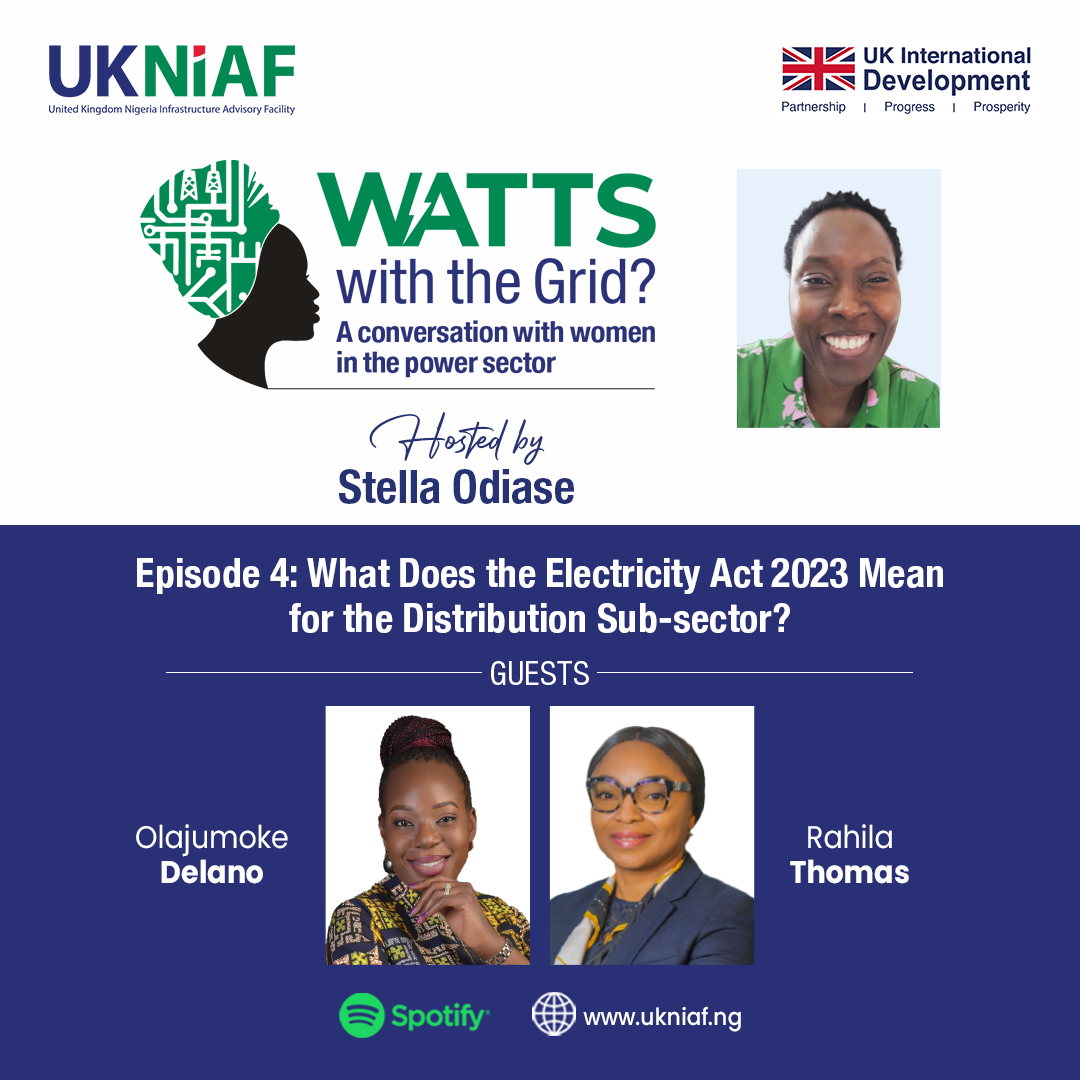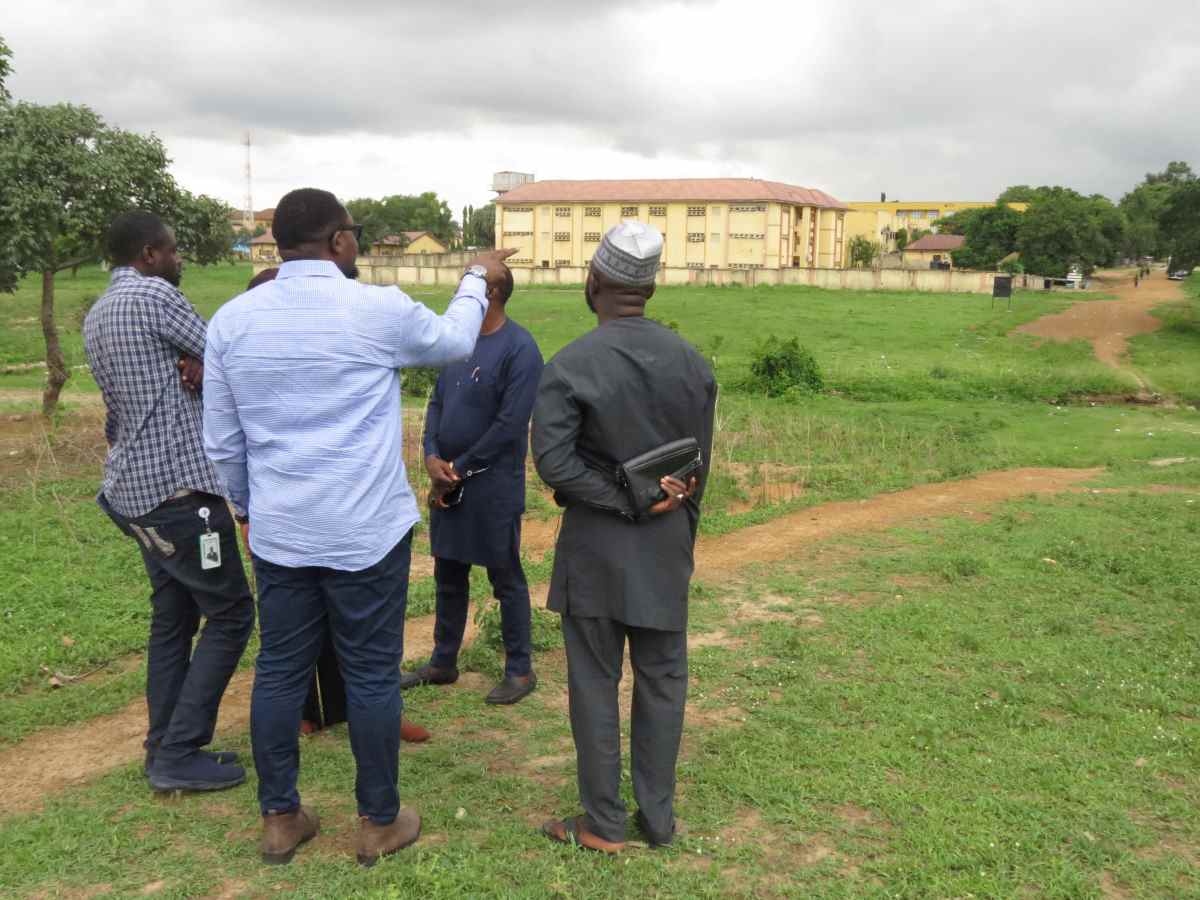The United Kingdom Nigeria Infrastructure Advisory Facility (UKNIAF) is an infrastructure development advisory programme delivered in partnership with various ministries, agencies, and departments of the Federal Government of Nigeria. Our focus is on catalysing transformational change in the planning, management, and delivery of public infrastructure in the power sector, federal roads network, and infrastructure finance in order to achieve more low-carbon and climate-resilient development. We also seek to improve the lives of Nigeria’s poorest and most vulnerable citizens by providing support and guidance to Nigerian government counterparts as they reform the planning, delivery, and management of public infrastructure in the three focus sectors – Power, Roads and Infrastructure Finance.
In the power sector, our efforts are focused on improving electricity supply via climate-smart pathways that encourage low-emissions behaviour. We are assisting Nigeria in its efforts to improve energy efficiency in the following ways:
Review and Update Operations Procedures at the National Control Centre
As part of its ongoing support to the Transmission Company of Nigeria (TCN), UKNIAF is assisting with the review and updating of operations procedures at the National Control Centre (NCC). This is critical because it enables TCN to adhere to the Nigerian Electricity Regulatory Commission’s directive that all available hydropower be dispatched before thermal power in the country’s electricity supply industry. This emphasises the benefits of low-cost energy dispatch and climate-smart technologies, as hydro plants generate electricity at a lower cost and have a lower carbon footprint than thermal plants.
This process will contribute to a future-proof revised set of Operational Procedures, which will result in the NCC operating more effectively and efficiently, resulting in increased grid resilience, lower electricity prices, and a more climate-smart energy market.
Service Based Tariff
The Nigerian Electricity Regulatory Commission (NERC) is implementing the service-based tariff (SBT). It is implemented to provide a mechanism for determining consumer tariffs based on the quality of service measured by hours per day of power availability that they receive. NERC intends to use this mechanism to incentivize DisCos to improve service delivery to consumers, putting the electricity value chain on a more secure and transparent path to cost-reflective tariffs.
UKNIAF is assisting NERC in the creation of a dashboard that accesses and displays power supply data obtained at the network’s 11KV and 33KV levels. This approach provides NERC with the most viable means of ongoing validation of consumer SBT banding. It also enables NERC to take the necessary regulatory corrective actions where data indicates that DisCOs are failing to meet or exceeding the performance levels of the tariff bands to which consumers have been assigned. This approach provides consumers with a sense of fairness in their tariff bands in the short-to-medium term, while efforts to metre all consumers and expand distribution network metre coverage continue. This process will result in less energy loss and lower carbon emissions in the long run.
Reducing Nigeria’s Metering Gap
The introduction of the Service-Based Tariff in the Nigeria Electricity Supply Industry on September 1st, 2020, has increased the importance of closing Nigeria’s metering gap. Closing this gap will improve the efficiency of DisCos. The Central Bank of Nigeria (CBN) is in charge of putting the National Mass Metering Programme into action. In the first phase of this programme, UKNIAF is working with USAID’s Nigeria Power Support Program to provide programme management support to the CBN.
UKNIAF will support the procurement of these metres by ensuring that the metre specifications meet NERC’s smart metre standards. The expectation is that when these smart metres are installed, they will make consumers more conscious of their energy usage, which will be directly related to the cost they pay; one of the long-term benefits of this will be a reduction in emission levels. This will also aid in the reduction of illegal connections (energy theft) and provide climate benefits by reducing some of the technical losses currently experienced as a result of inefficient power use.














